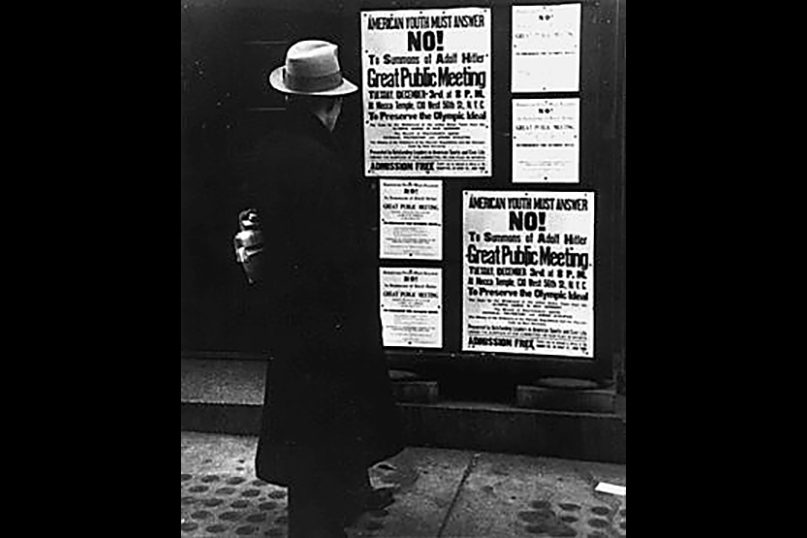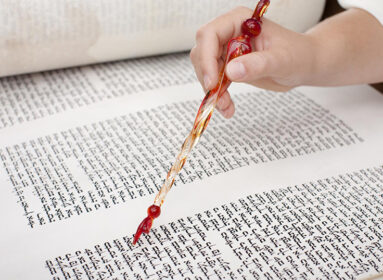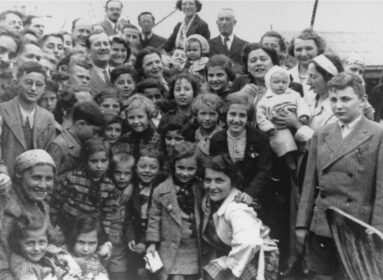
By Rafael Medoff
The growing relationship between the National Basketball Association and the government of China has become a source of controversy. One NBA team’s general manager has publicly criticized the Chinese suppression of pro-democracy protesters in Hong Kong, while several prominent players have argued against mixing sports with politics.
The American Jewish community was embroiled in a similar public dispute in the 1930s, over plans to hold the 1936 Olympic Games in Nazi Germany.
Berlin had been awarded the 1936 games several years before the Nazis came to power. When Adolf Hitler became chancellor in 1933 and began persecuting German Jews, the American Jewish Congress, led by Rabbi Stephen S. Wise, launched a public campaign for a U.S. boycott of the games. A non-establishment group, Samuel Untermyer’s Non-Sectarian Anti-Nazi League to Champion Human Rights, also actively promoted the boycott.
American Olympic Committee president Avery Brundage strongly supported U.S. participation in the Berlin games. To prove that Hitler could be trusted to abide by the rules, Brundage visited Germany in 1934 and returned to announce that the Nazi leadership had given him “unqualified assurances of non-discrimination.”
Brundage’s deputy, Charles Sherrill, publicly warned American Jewish boycott advocates that if they continued their protests, “we are almost certain to have a wave of antisemitism.” The boycott campaign was “overplaying the Jewish hand in America as it was overplayed in Germany before the present suppression and expulsion of the Jews were undertaken,” Sherill asserted.
President Franklin D. Roosevelt could have blocked U.S. athletes from participating, as Jimmy Carter later would do in regard to the 1980 Olympic Games in Moscow (to protest the Soviet occupation of Afghanistan). But FDR opposed the boycott. His position in the 1930s was that maintaining cordial – sometimes friendly – diplomatic and trade relations with Germany was more important than Hitler’s treatment of the Jews or other human rights violations.
It was not as if President Roosevelt was uninformed regarding Hitler’s intentions. The U.S. ambassador in Berlin, William Dodd, warned Washington that the Nazis were planning to use the Olympics “to rehabilitate and enhance the reputation of the ‘New Germany.’” Foreigners will “have only the usual tourist contacts” and are likely to come away doubting the veracity of “the Jewish persecution which they have previously read in their home papers,” Dodd predicted. FDR was not moved.
In addition to Jewish organizations, a number of prominent non-Jews also endorsed the boycott, including the governors of Massachusetts and Pennsylvania, the NAACP, the Catholic War Veterans, and a number of well-known Christian clergymen.
The AJCongress also contacted individual athletes around the country, urging them to boycott the games. Only a handful of athletes did so, including Tulane University’s star sprinter, Herman Neugass; championship jumper Syd Koff, who had already qualified for the 1936 U.S. team; Harvard track and field stars Norman Cahners and Milton Green; speed skater Jack Shea, a Catholic, who had won a gold medal in the 1932 games; and the entire Long Island University Blackbirds basketball team, which was widely considered the favorite to capture the gold in Berlin.
One prominent sports columnist, Frank Eck of the Associated Press, chastised the Blackbirds for mixing sports with politics. He accused the team of causing “ill feelings” by protesting the mistreatment of Germany’s Jews.
The Nazis prepared carefully before foreign visitors began arriving in the summer of 1936. Antisemitic literature was taken off the newsstands in Berlin. Physical assaults on Jews were kept to a minimum during the games.
Visiting journalists were duly impressed. The New York Times praised the German government for its “flawless hospitality.” A Los Angeles Times correspondent wrote: “Zeus, in his golden days, never witnessed a show as grand as this.” An editorial in that newspaper even predicted that the “spirit of the Olympiads” would “save the world from another purge of blood.”
Many Americans derived satisfaction from the fact that an African-American track star, Jesse Owens, won four gold medals in Berlin. But the harm that was done outweighed Owens’ achievements. Hitler’s hosting of the Olympics gave him a way to soften his public image and allay the international community’s concerns about his bigotry, violence, and militarism.
Rabbi Wise’s worst fears were confirmed when he visited the White House shortly after the games. President Roosevelt told Wise that he had learned from two tourists who had attended the games “that the synagogues are crowded and apparently there is nothing very wrong in the situation [of Germany’s Jews] at present.”
Shocked, Wise tried to “explain to him how grave conditions were,” citing recent examples of “the ruthless and continuing oppression of the Jews.” It was to no avail, Wise later recalled. “He listened carefully; but I could see that the tourists – whoever they were, the Lord bless them not – had made an impression upon him.”
Eight decades later, “Shut up and dribble” remains the approach favored by those who place a premium on political or business interests. For those who value human rights above other considerations, however, cozying up to brutal dictators continues to be a stain on America’s conscience.
Dr. Rafael Medoff is founding director of The David S. Wyman Institute for Holocaust Studies, and the author of The Jews Should Keep Quiet: Franklin D. Roosevelt, Rabbi Stephen S. Wise, and the Holocaust (Jewish Publication Society / University of Nebraska Press).
Main Photo: A pedestrian reads a notice announcing an upcoming public meeting, scheduled to urge Americans to boycott the upcoming 1936 Berlin Olympics. New York, United States, 1935. (Credit: National Archives and Records Administration, College Park, MD)








 Southern New England Jewish Ledger
Southern New England Jewish Ledger














